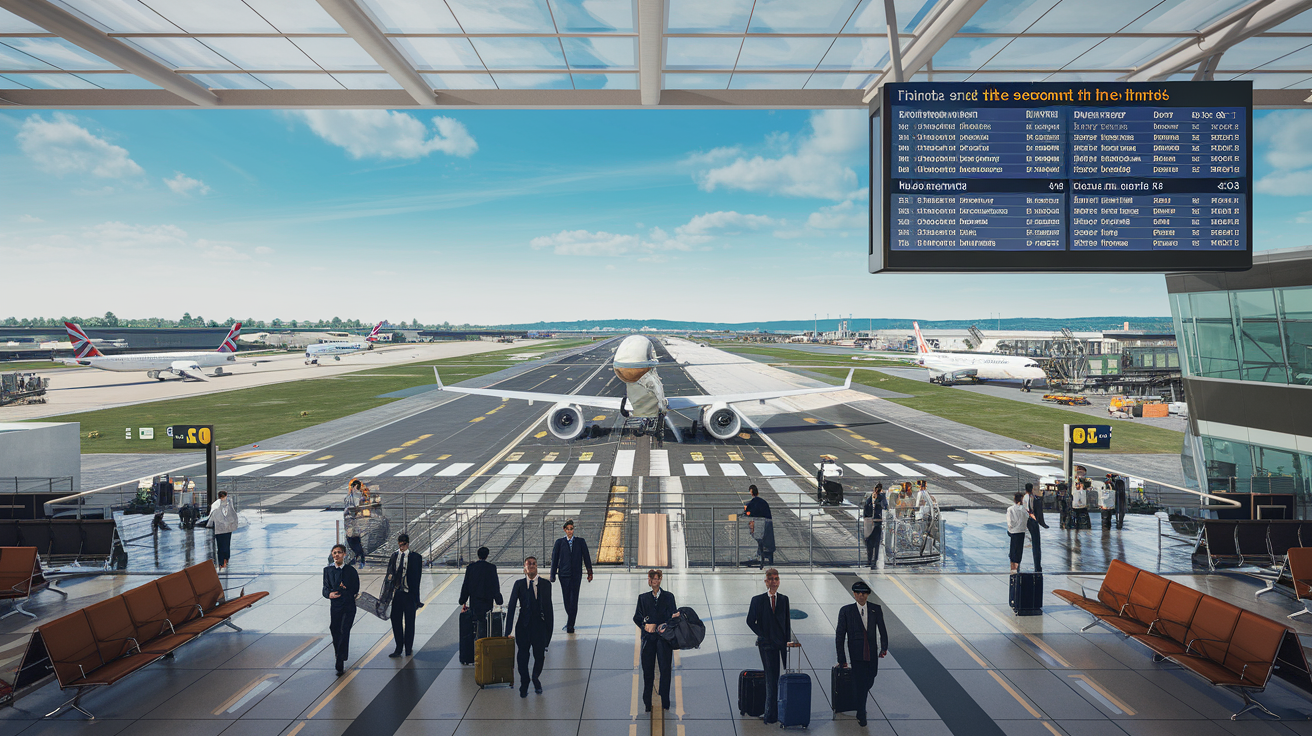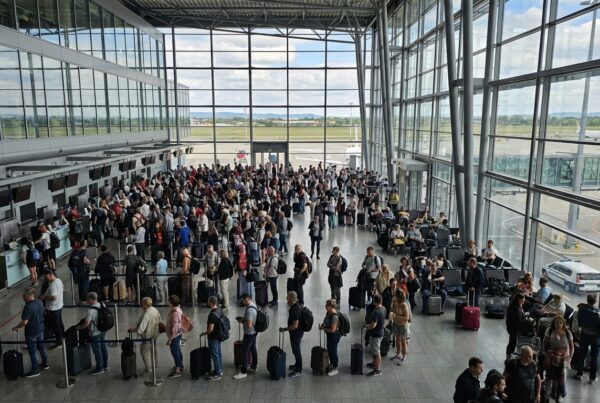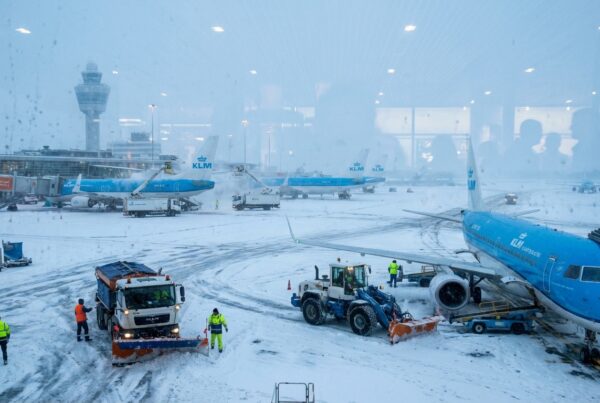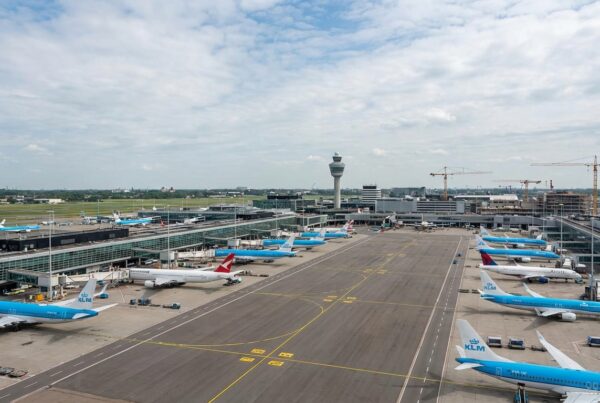The airport of London-Gatwick plans to equip itself with a second track to increase its capacity from 62 to 75 million passengers a year by 2038. Located south of London, Gatwick aims to transform its escape route into a fully operational runway, ready for 2030. This ambitious project, estimated at £2.2 billion, includes the extension of the south terminal and the construction of a new terminal for long-haul flights. However, this initiative is facing opposition due to its environmental impact and the carbon emissions it would generate.
An ambitious project
Located south of London, the airport of Gatwick is one of the busiest in the UK. Despite the challenges of growing passenger numbers, it is in the midst of an ambitious project to transform its current emergency runway into a full-fledged second runway. This project would encourage exponential growth in passenger numbers, potentially reaching 75 million by 2038. This expansion would mark a significant increase on its current capacity of 62 million.
Government decision postponed
The Gatwick is supported by many supporters of air expansion, but has recently hit a roadblock. Although the airport had pledged to press ahead with work, the British government decided to postpone its decision on the colossal £2.2 billion (approx. €2.7 billion) expansion plan until October. Despite this postponement, Gatwick remains determined and optimistic about the future.
Environmental issues
However, the expansion of Gatwick Airport's capacity is also being contested, not least because of environmental concerns. Carbon emissions from the second runway and its impact on the natural environment are causing concern among environmentalists. Such opposition is at the heart of the expansion debate, prompting the authorities to carefully consider all potential consequences.
Proposed improvements for Gatwick
Beyond the construction of a new runway, the Gatwick project includes improvements to the airport's overall infrastructure. This includes the extension of the south terminal, the construction of a new terminal dedicated to long-haul flights, and even the extension of the rail network serving the airport. These improvements promise to make Gatwick an even more important hub for international air travel.
Parallels elsewhere
If Gatwick is moving ahead with its project, it would not be alone in aiming for such expansion. Perth, for example, recently announced a new $2 billion terminal and runway investment as part of an agreement with Qantas. These global initiatives underline the growing need for infrastructure to support rising demand in the airline industry.
For more information on recent incidents and improvements across the aviation world, see the following articles: Accident in Washington: FAA imposes restrictions on helicopter flights and Qantas postpones the introduction of the Airbus A220.

Comparison: London Gatwick Airport expansion
| Aspects | Description |
| Current | 62 million passengers a year |
| Projected | 75 million passengers per year by 2038 |
| Estimated cost | 2.2 billion pounds sterling |
| Infrastructure | Turning the emergency runway into a real runway |
| Completion date | Expected in 2030 |
| Environmental impact | Opposition due to carbon emissions |
| Planned expansion | South terminal extension and new terminal |
| Government decision | Postponed to October |
| Support | British government in favour despite delay |
| Objective | Improving connectivity and capacity |




